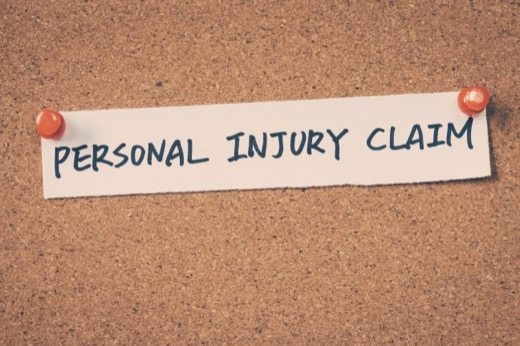Florida Nursing Home Liability When Elderly Patients Are Injured
Americans are living longer lives, but often the later years are spent in declining health. Family members are living farther apart and working longer hours. Who is going to care for the seniors who may need years of medical care, daily therapy, and constant supervision? Increasingly, that responsibility is falling to nursing homes and other facilities to provide care for the geriatric populace.
As of 2014 about 1.7 million elderly people live in nursing homes. In Florida, a popular retirement destination, more than 20 percent of the population is aged 65 or older, according to the U.S. Census Bureau, with only about 84,000 total available nursing home beds.
Though nationally only five percent of the elderly population lives in nursing homes, 20 percent of the falls and accidents the elderly experience occur in nursing facilities.
Nursing homes provide skilled care and assistance, including dental and mental health services, and restorative care, and treat dementia, and manage pain. Even at the highest quality homes, there is plenty of opportunity for something to go wrong and an elderly patient could be harmed through negligence or abuse or simply by an unpreventable accident.
Statistics indicate injuries to nursing home patients occur at an alarming rate:
25 percent of nursing homes are cited for causing death or serious injury
At least 5,000 deaths each year are due to nursing home injuries and negligence
10 percent of nursing home residents suffer from bedsores
Nursing home residents fall at twice the rate of other elderly populations
Look for Signs of Ill Treatment
While busy, overstressed family members can shift the daily care of an elderly relative to a nursing home and its staff, the burden remains with friends and family to regularly visit the home and monitor the overall well-being, safety, and treatment of the relative residing there. Patients who are able to walk around can slip and fall or wander away from the facility and encounter dangers. Patients whose condition restricts them to their beds can suffer bedsores and infections.
Look for these signs, which may indicate deliberate mistreatment or negligence:
Severe infections;
Bedsores in extreme stage of development;
Unexplained bruises, cuts, welts or wounds;
Marks of old injuries at differing stages of healing;
Dehydration;
Malnutrition;
Asphyxiation; and
Head injuries or fractures.
Nursing Home Regulations
The federal Nursing Home Reform Act requires nursing homes participating in Medicare and Medicaid to provide services and activities to attain or maintain the highest practicable physical, mental, and psychosocial well-being of each resident in accordance with a written plan of care.
Under federal nursing home regulations, nursing homes must:
Maintain an adequate nurse-to-patient ratio;
Conduct a comprehensive assessment of all residents’ capabilities;
Develop a unique care plan for every resident;
Maintain the residents’ ability to do basic health basics, such as bathe and eat;
Take measures to prevent against the development of bedsores;
Provide all necessary treatments;
Supervise residents and take measures to prevent accidents;
Take measures to prevent against medication errors;
Promote residents’ quality of life; and
Maintain records in regards to each resident.
Florida law recognizes that nursing home residents are entitled to basic rights, including the right to:
Be treated with dignity, respect, and fairness;
Be free from any form of physical, mental, emotional, or financial abuse;
Select a pharmacy and physician;
Refuse suggested treatment and take part in health care planning;
Receive written and oral information regarding medical and nursing services;
Participate in various religious, social, and community activities;
Maintain private communication, including uncensored personal mail;
Make and receive private, unmonitored phone calls; and
Present grievances or recommendations without fear of repercussions.
Suing a Nursing Home for Neglect, Abuse
In September the federal Health and Human Services Department announced a new rule that liberates injured parties from binding arbitration clauses in nursing home contracts, which required patients and families to settle any dispute in arbitration rather than through the court system. Now patients or their family can sue the nursing home owner, management, and individual employees if they are injured or killed.
In Florida, the law enables nursing home residents to file civil action lawsuits when their rights are violated. Where there has been nursing home abuse that caused the death of a resident, the resident’s family is entitled to sue for wrongful death claim.
In such a lawsuit the injured resident would have to establish:
The nursing home owed a duty to the nursing home resident;
The home breached or violated the legal duty; and
As a result of the breach of duty, the resident suffered loss, injury, damage, or death
Causes of Action
There are several kinds of accidents, intentional acts, and failures to act that can open a nursing home or other care facility to liability. Here are a few examples:
Failure to keep the premises reasonably safe and free of hazards;
Failure to prevent one resident from attacking another;
Negligent hiring of an employee who neglects, abuses, or intentionally harms a patient;
Failure to properly train and supervise employees;
Negligent supervision of residents who fall or otherwise injure themselves;
Failure to maintain adequate health, safety, and cleanliness policies; and
Failure to provide adequate medical treatment.
If you or a loved one has been injured or suffered abusive treatment as a nursing home resident, call us for a free consultation with the elder abuse and skilled nursing home neglect attorneys in Ft. Lauderdale at Madalon Law. The attorneys at Madalon Law are experienced in elder abuse law and will work hard to protect your rights.














